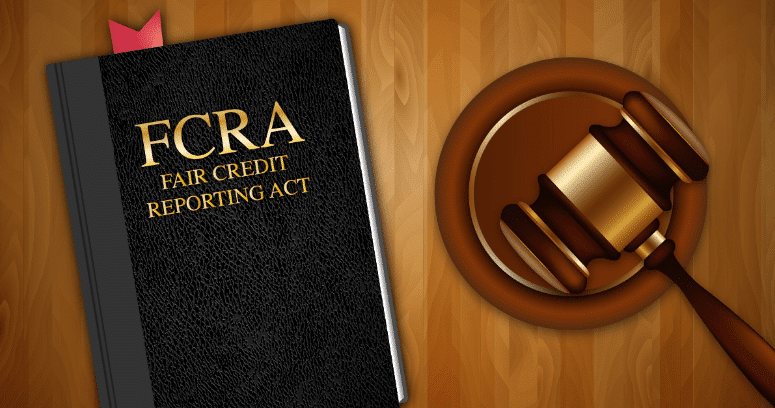Let’s put it in friendly terms! Imagine a courtroom as a stage where two main characters, the plaintiff and the defendant, take center stage.
The plaintiff is like the star of the show, kicking things off by filing the lawsuit. They’re the ones bringing legal action against someone else, seeking resolution or compensation.
On the flip side, the defendant is the one challenged to respond and defend themselves in court. They’re the target of the legal action brought by the plaintiff.
So, while the plaintiff starts the legal drama, the defendant steps up to answer the call and defend their position.
In a debt collection lawsuit, it’s the same dynamic:
- Plaintiff: The person or company suing someone else for debt.
- Defendant: The person or company being sued for a debt, regardless of whether they actually owe it or not.
Understanding these roles is key when navigating debt collection lawsuits!
In a civil case, what is the difference between a plaintiff and a defendant?
In a civil case, the plaintiff and defendant play distinct roles based on their involvement in the legal proceedings.
The plaintiff is the party that initiates the civil lawsuit by bringing a legal claim against another individual or entity. They are the ones who seek a legal remedy or compensation for damages suffered.
Conversely, the defendant is the party against whom the lawsuit is brought. They are tasked with defending themselves against the allegations or claims made by the plaintiff.
In essence, the plaintiff is the initiator of the legal action, while the defendant is the one who must respond to and defend themselves in court.
What is a plaintiff in a court case?
In a court case, the plaintiff is typically the individual or entity initiating legal action, especially in a debt collection lawsuit. In this scenario, the plaintiff could be a creditor or a debt collection agency.
For instance, consider Jane, who faces financial difficulties after losing her job during the COVID-19 pandemic. Unable to keep up with her credit card payments to American Express, her debt is eventually sold to a debt collection agency named Midland Funding LLC. Despite Jane’s financial hardship, Midland Funding LLC proceeds to file a lawsuit against her to recover the debt.
In this example, Midland Funding LLC acts as the plaintiff, while Jane assumes the role of the defendant. The term ‘plaintiff’ stems from ‘complain,’ indicating that Midland Funding LLC, the plaintiff, is lodging a complaint against Jane in this particular context.
Is plaintiff the same as complainant?
Yes, in many criminal cases, the plaintiff is commonly referred to as the complainant. However, in civil cases such as personal injury or debt collection lawsuits, the term ‘plaintiff’ is more commonly used to describe the party initiating the lawsuit. Therefore, if you’re involved in a debt collection lawsuit, it’s unlikely that you’ll hear the term ‘complainant’ used to describe the party suing you. Instead, ‘plaintiff’ is the term typically used in civil cases to denote the individual or entity bringing the lawsuit against you.
Who is the defendant in a case?
In a legal case, the defendant is the individual who is being sued in a civil lawsuit or the person accused of committing a crime in a criminal case.
For instance, if a debt collector initiates a lawsuit against you, you become the defendant in the case. Similarly, if you’re accused of a crime, you would also be considered the defendant in a court setting.
Using the example provided, Jane would be identified as the defendant in the case. It’s helpful to remember that the term ‘defendant’ signifies the individual who must defend themselves against the allegations or claims made by the plaintiff.
The word ‘defendant’ originates from the concept of ‘defense,’ representing the act of defending oneself against the claims presented by the plaintiff. Therefore, if you find yourself in a situation like Jane’s, the law permits you to present a defense against the allegations brought forward by the plaintiff.
The Burden of Proof for the plaintiff and defendant in debt collection lawsuits
In debt collection lawsuits, the burden of proof plays a crucial role in determining the outcome of the case for both the plaintiff and the defendant.
When Midland Funding LLC initiates a debt collection lawsuit against Jane, they bear the burden of proof. This means they must provide evidence to support their claim that Jane owes the debt in question.
In civil cases like debt collection lawsuits, the burden of proof for the plaintiff is less stringent than in criminal cases. The plaintiff doesn’t need to prove beyond a reasonable doubt that the defendant owes the debt; instead, they must demonstrate to the judge or jury that there’s more than a 50% chance that the claim is true. Essentially, the plaintiff’s goal is to present compelling evidence that tips the scales in their favor.
Conversely, in criminal cases, the burden of proof is much higher. The prosecution must prove beyond a reasonable doubt that the defendant is guilty of the alleged crimes. This standard ensures that defendants are not convicted based on mere suspicion or conjecture.
Understanding the burden of proof is essential for both parties involved in debt collection lawsuits, as it guides the presentation of evidence and arguments throughout the legal proceedings.
Examples of burden of proof in debt collection laws
Understanding the burden of proof in debt collection laws is crucial in grasping the dynamics between the plaintiff and the defendant throughout the case. Let’s break it down using the example of Midland Funding LLC vs. Jane:
- Initial Lawsuit Filing: When Midland Funding LLC initiates the debt collection lawsuit against Jane, she becomes the defendant. Jane receives a Summons and Complaint, with the Summons notifying her of the lawsuit and the Complaint outlining each specific claim against her.
- Response Options: Jane has several options in responding to the Complaint:
- Admit: Acknowledging the claims as true.
- Deny: Challenging the claims and requesting proof.
- Deny due to lack of knowledge: Indicating uncertainty regarding the claims.
- Recommended Response: Many attorneys advise denying all claims in the Complaint, shifting the burden of proof back to the plaintiff (Midland Funding LLC). By doing so, Midland Funding LLC must provide evidence to substantiate the debt claims.
- Plaintiff’s Responsibility: Midland Funding LLC cannot pursue further legal action against Jane until they prove the validity of the debt. Often, debt collection agencies abandon the case if unable to provide sufficient documentation.
- Defendant’s Defense: If Midland Funding LLC proves Jane owes the debt but she disputes it, the burden of proof shifts back to her. For instance, if Jane claims the debt was already paid, she must provide evidence to support her defense.
- Judicial Resolution: Ultimately, a judge may intervene in the debt collection lawsuit. In some instances, the judge may recommend mediation or arbitration to resolve the matter outside of court.
Understanding these dynamics empowers individuals like Jane to navigate debt collection lawsuits effectively, ensuring their rights are protected throughout the legal process.
Verify your debt before paying
It’s crucial to verify your debt before making any payments, especially if a lawsuit has been filed against you. Debt can change hands multiple times, increasing the risk of errors or discrepancies in the amount owed. For instance, a debt collection agency might mistakenly inflate the debt amount.
Unfortunately, consumers often end up paying for debts they don’t owe. That’s why it’s essential to request further verification of the debt before taking any action. Requesting a debt validation not only safeguards you from paying erroneous debts but also gives you time to strategize your response to the lawsuit. You can do this by sending a Debt Validation Letter.
For more information on Debt Validation Letters and how to draft one, visit ZumaZip. They can guide you through the process and help you understand your rights when dealing with debt collection issues.
The bottom line
Here’s the bottom line: Whether you believe you owe a debt or not, it’s crucial to respond promptly to a debt collection Summons. Ignoring it won’t make the issue disappear; instead, it could lead to a default judgment being issued against you. This gives the plaintiff legal authority to pursue other means of debt recovery, such as wage garnishment.
But don’t worry, ZumaZip has your back! With ZumaZip, you can draft a response in under 15 minutes, have it reviewed by an attorney, and file it with the court, all in one convenient place. Don’t let debt collectors push you around—take control of your situation with ZumaZip.
What is ZumaZip?
ZumaZip is your go-to solution for tackling debt collectors and creditors hassle-free.
Here’s the scoop: ZumaZip is a user-friendly web application that guides you step-by-step through creating your written Answer. It asks all the important questions to ensure your Answer is thorough and accurate. Once you’re done, you have the choice to print the completed forms and mail them to the courts yourself. Alternatively, you can opt to have ZumaZip handle the filing process for you, including an attorney review of your document for added peace of mind. With ZumaZip, you can take control of your debt situation with confidence and ease.
What if I haven’t been sued yet?
If you’ve only received a collections notice, but not a lawsuit, the best way to respond is with a Debt Validation Letter. When a debt collector contacts you in any way, whether it’s by phone or mail, you can respond by formally requesting a debt validation with a Debt Validation Letter . This letter notifies the collector that you dispute the debt and forces them to provide proof you owe the debt. They can’t call you or continue collecting until they provide validation of the debt. This flowchart shows how you can use a Debt Validation Letter to win.
Get started with a Debt Validation Letter here.
How to Answer a Summons for debt collection in all 50 states
Here’s a list of guides on how to respond to a debt collection lawsuit in each state:
- Alabama
- Alaska
- Arizona
- Arkansas
- California
- Colorado
- Connecticut
- Delaware
- Florida
- Georgia
- Hawaii
- Idaho
- Illinois
- Indiana
- Iowa
- Kansas
- Kentucky
- Louisiana
- Maine
- Maryland
- Massachusetts
- Michigan
- Minnesota
- Mississippi
- Missouri
- Montana
- Nebraska
- Nevada
- New Hampshire
- New Jersey
- New Mexico
- New York
- North Carolina
- North Dakota
- Ohio
- Oklahoma
- Oregon
- Pennsylvania
- Rhode Island
- South Carolina
- South Dakota
- Tennessee
- Texas
- Utah
- Vermont; Vermont (Small Claims court)
- Virginia
- Washington
- West Virginia
- Wisconsin
- Wyoming
































